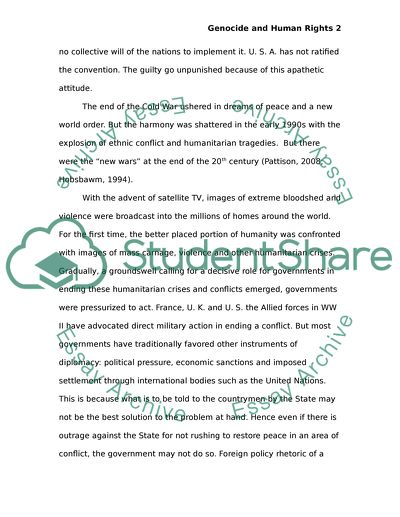Cite this document
(“Genocide and humanitarian intervention Essay Example | Topics and Well Written Essays - 3000 words”, n.d.)
Retrieved from https://studentshare.org/sociology/1559369-genocide-and-humanitarian-intervention
Retrieved from https://studentshare.org/sociology/1559369-genocide-and-humanitarian-intervention
(Genocide and Humanitarian Intervention Essay Example | Topics and Well Written Essays - 3000 Words)
https://studentshare.org/sociology/1559369-genocide-and-humanitarian-intervention.
https://studentshare.org/sociology/1559369-genocide-and-humanitarian-intervention.
“Genocide and Humanitarian Intervention Essay Example | Topics and Well Written Essays - 3000 Words”, n.d. https://studentshare.org/sociology/1559369-genocide-and-humanitarian-intervention.


